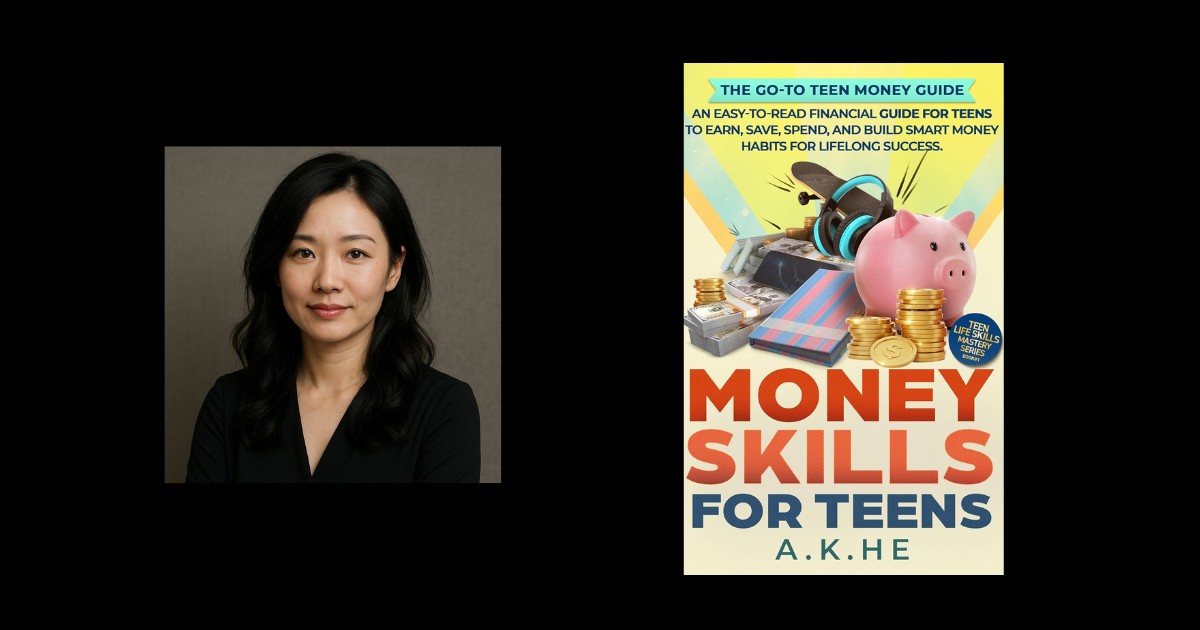What’s the story behind the story? What inspired you to write Money Skills for Teens?
I wrote Money Skills for Teens as a gift for my son, who just turned 13. Like many teens, he’s bright and curious but still learning how to be independent. When I thought about the challenges ahead—managing money, making decisions, and building confidence, I realized I wanted to give him something I wished I had at his age: a clear, supportive, no-lecture guide to money. This book is my way of preparing him, and other teens like him, to step into adulthood with confidence rather than confusion.
If you had to pick theme songs for the main characters of Money Skills for Teens, what would they be?
Since my book is nonfiction, the “characters” are really the teens learning about money. For them, I’d pick something upbeat and empowering, like “Stronger” by Kelly Clarkson, because learning money skills is about resilience. And maybe “Don’t Stop Believin’” by Journey, because building financial habits is about hope and persistence.
What’s your favorite genre to read? Is it the same as your favorite genre to write?
I read widely—self-help, personal growth, and finance are always on my list, but I also love memoirs because they offer such an honest window into people’s lives. When I write, I combine those interests: practical guidance plus personal storytelling. I like to write in a way that feels like a conversation rather than a lecture, so teens (and parents) feel supported, not overwhelmed.
What books are on your TBR pile right now?
I’ve got The Psychology of Money by Morgan Housel, Atomic Habits by James Clear (a re-read because the insights are timeless), and The Defining Decade by Meg Jay. I’m also reading a lot of teen-centered books in the life skills space, since I’m building out my Teen Life Skills Mastery Series.
What scene in your book was your favorite to write?
I loved writing the stories about teens facing real-life money situations—like Jake, who spent all his summer job earnings on sneakers and gadgets, only to realize he didn’t have enough left for college applications. Those stories let me blend lessons with real emotions, which is where teens connect most.
Do you have any quirky writing habits? (lucky mugs, cats on laps, etc.)
I tend to write late at night when the house is finally quiet, with a big mug of tea beside me. I also keep stacks of sticky notes everywhere, scribbling down random money tips, teen quotes, or scene ideas when they pop into my head. My writing space usually looks like a collage of scattered notes.
Do you have a motto, quote, or philosophy you live by?
“Small steps every day lead to big changes.” I believe in progress, not perfection. That’s how I approach both parenting and writing, and it’s the same message I share with teens about money. You don’t need to master everything at once; you just need to start.
If you could choose one thing for readers to remember after reading your book, what would it be?
Money isn’t just about numbers; it’s about confidence. If a teen finishes this book feeling less intimidated and more in control, then I’ve done my job. The skills will grow, but the belief that “I can do this” is the most powerful takeaway of all.
Sign up for our email and we’ll send you the best new books in your favorite genres weekly.

